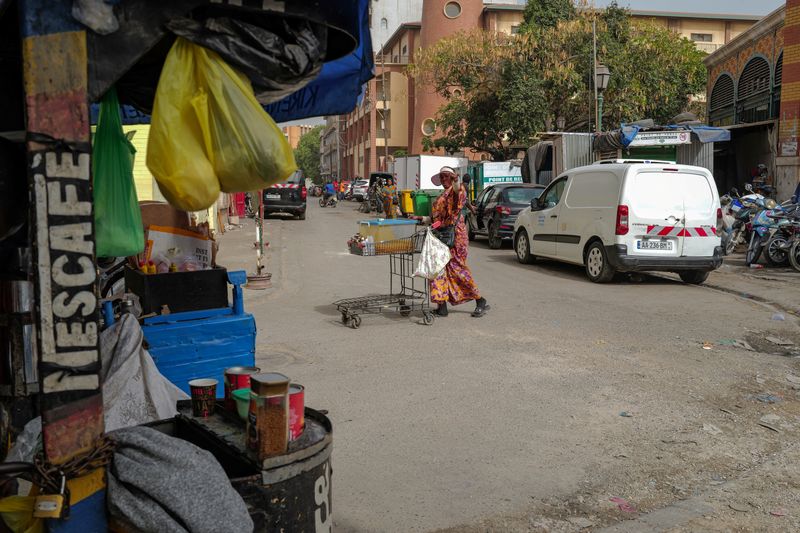By Libby George
LONDON (Reuters) -The International Monetary Fund is waiting for more data before it can firm up its assessment on Senegal’s debt situation and still needs to reach an agreement on key remedial measures with the country, a Fund spokesperson said on Thursday.
Senegal is grappling with billions in debts hidden by the previous administration – a problem for the cash-strapped country – which has seen its programme with the Fund put on hold over the issue.
The IMF’s executive board must approve either a waiver for misreporting – seen as the base case by many investors – or order Senegal to pay back previous programme disbursements. With a waiver, Senegal would be able to negotiate a new programme.
“Once we have reached agreement on the key corrective measures, the IMF Board will be in a position to consider the Senegal misreporting case and take a decision,” a spokesperson for the Fund said in response to emailed questions from Reuters.
An agreement on these measures could be reached “hopefully within the coming weeks,” the spokesperson added.
The IMF estimates – based on latest data from Senegalese authorities – that hidden debt stood at $11.3 billion by end-2023, the spokesperson added. This included a portion for state-owned enterprises of about 7.4% of GDP.
There have been a range of estimates.
S&P pegged the total hidden debt discovered since October 2024 at roughly $13 billion.
Concerns over Senegal’s debt situation have escalated since September 2024, when the then newly elected government said an audit of government finances had shown the budget deficit at the end of 2023 stood at over 10% – more than double of what was reported by the previous administration.
Senegal is not the first case of hidden debt, with Mozambique’s infamous “tuna bond” scandal the most recent high-profile example in Africa.
The spokesperson said that the IMF, which has come under fire for not catching the off-books lending during its programme, will present information to the board on how the hidden debt went undetected.
“The IMF is conducting an internal assessment and diagnostic as part of the misreporting process,” the spokesperson added.
(Reporting by Libby George, writing by Karin Strohecker, editing by Dhara Ranasinghe)

